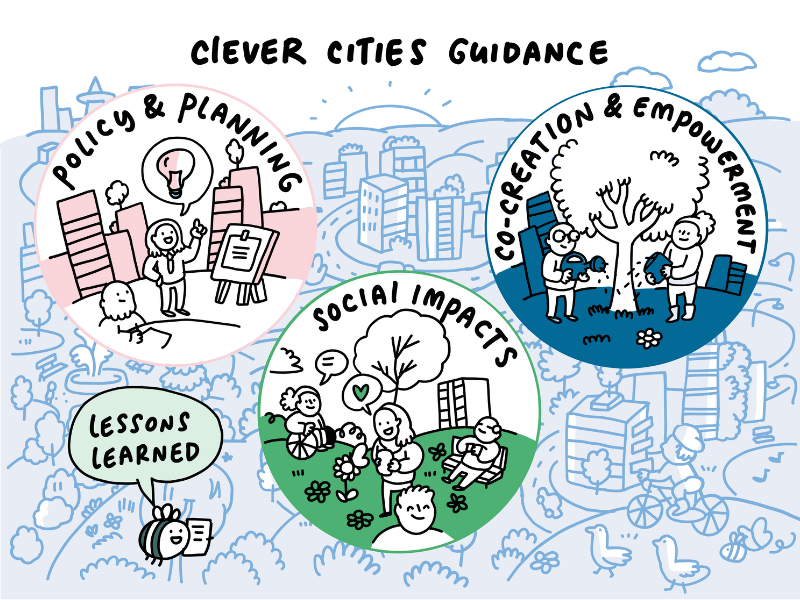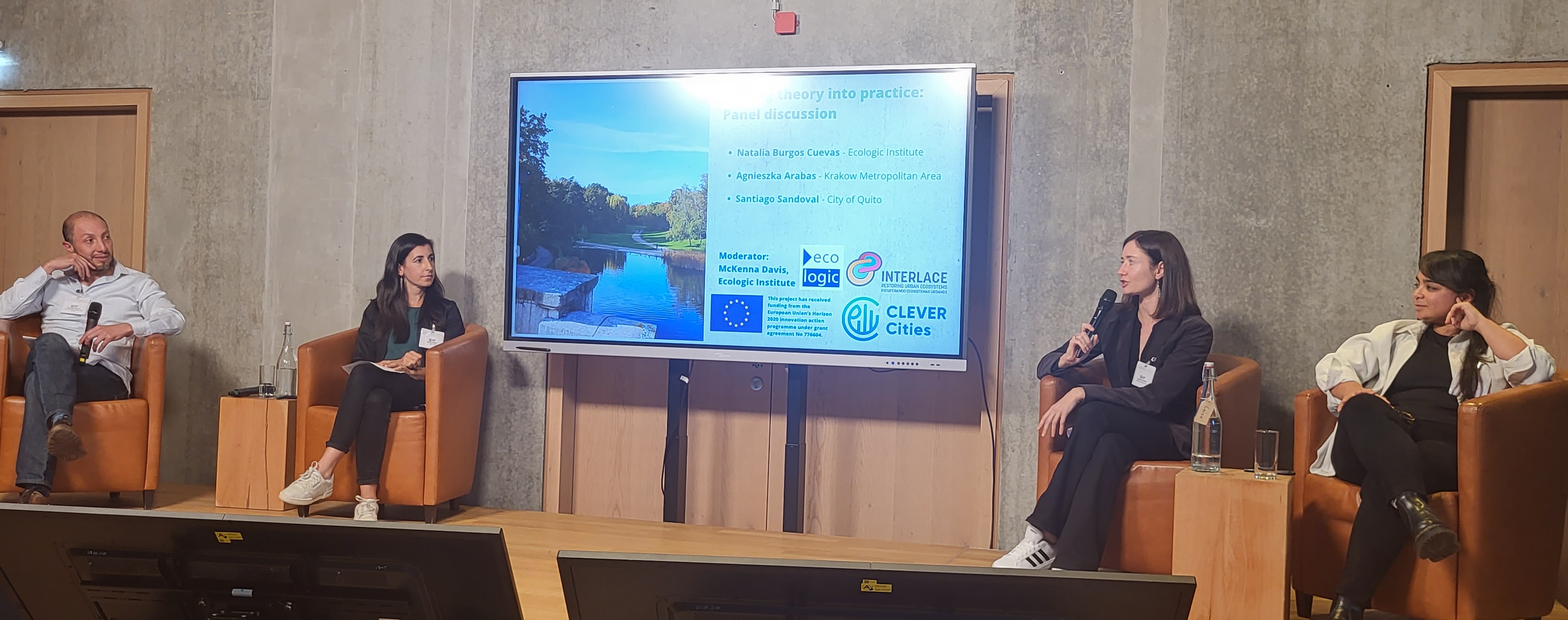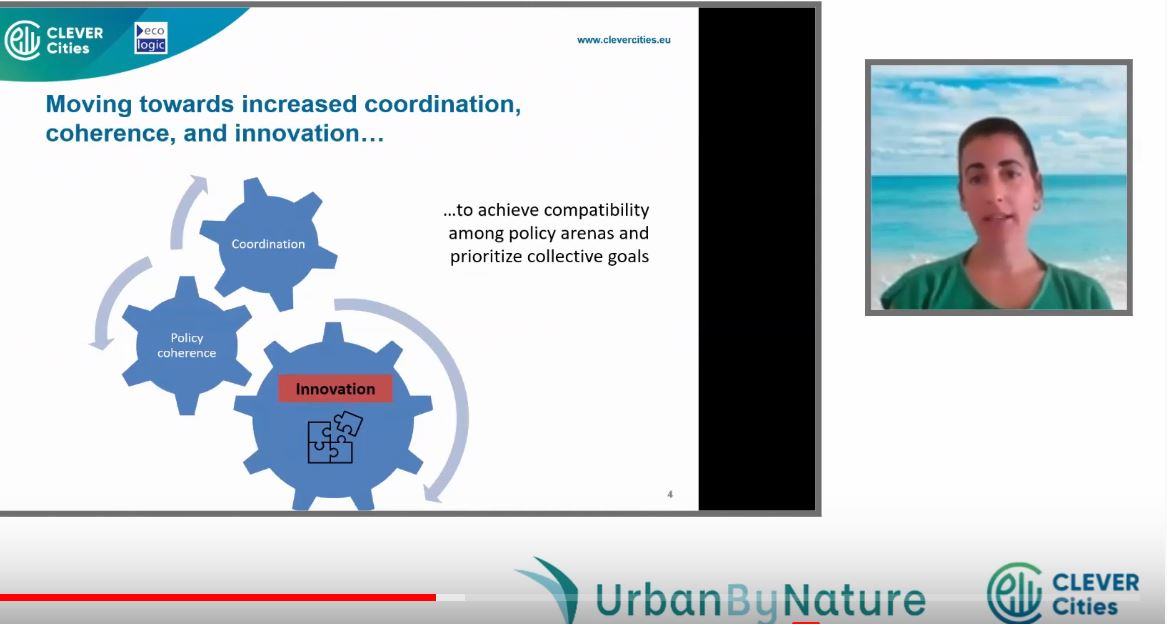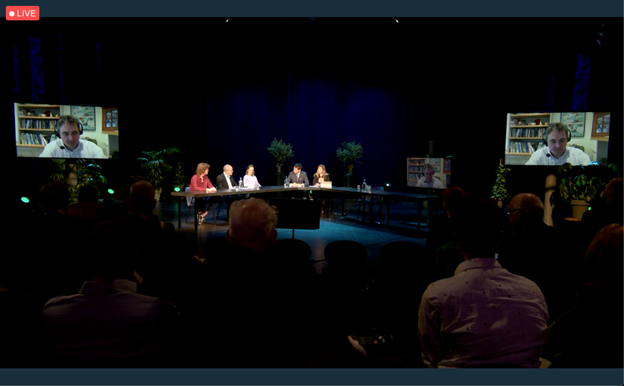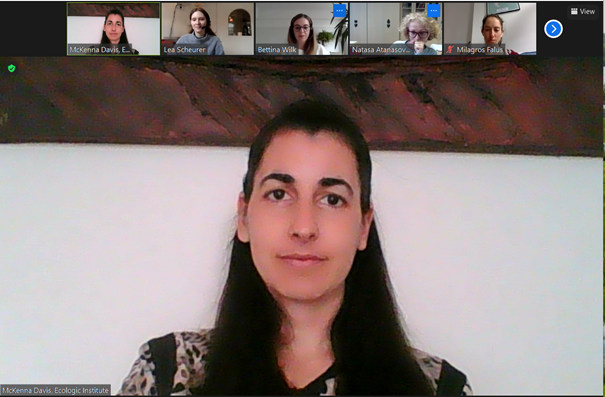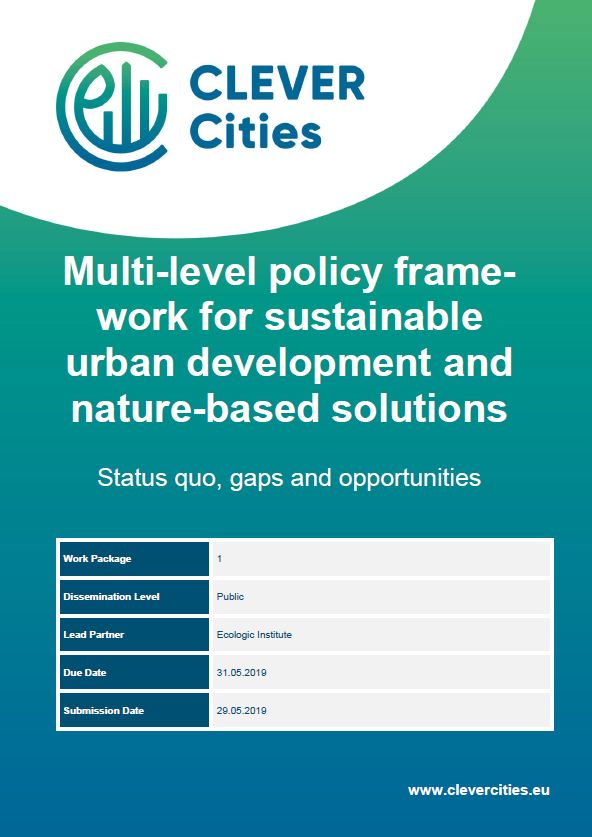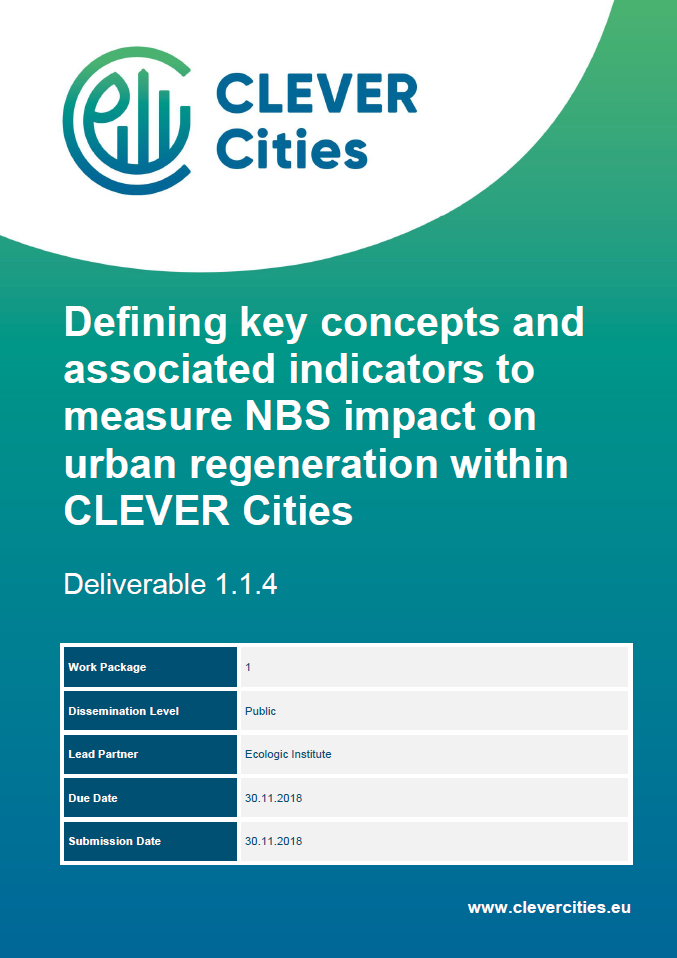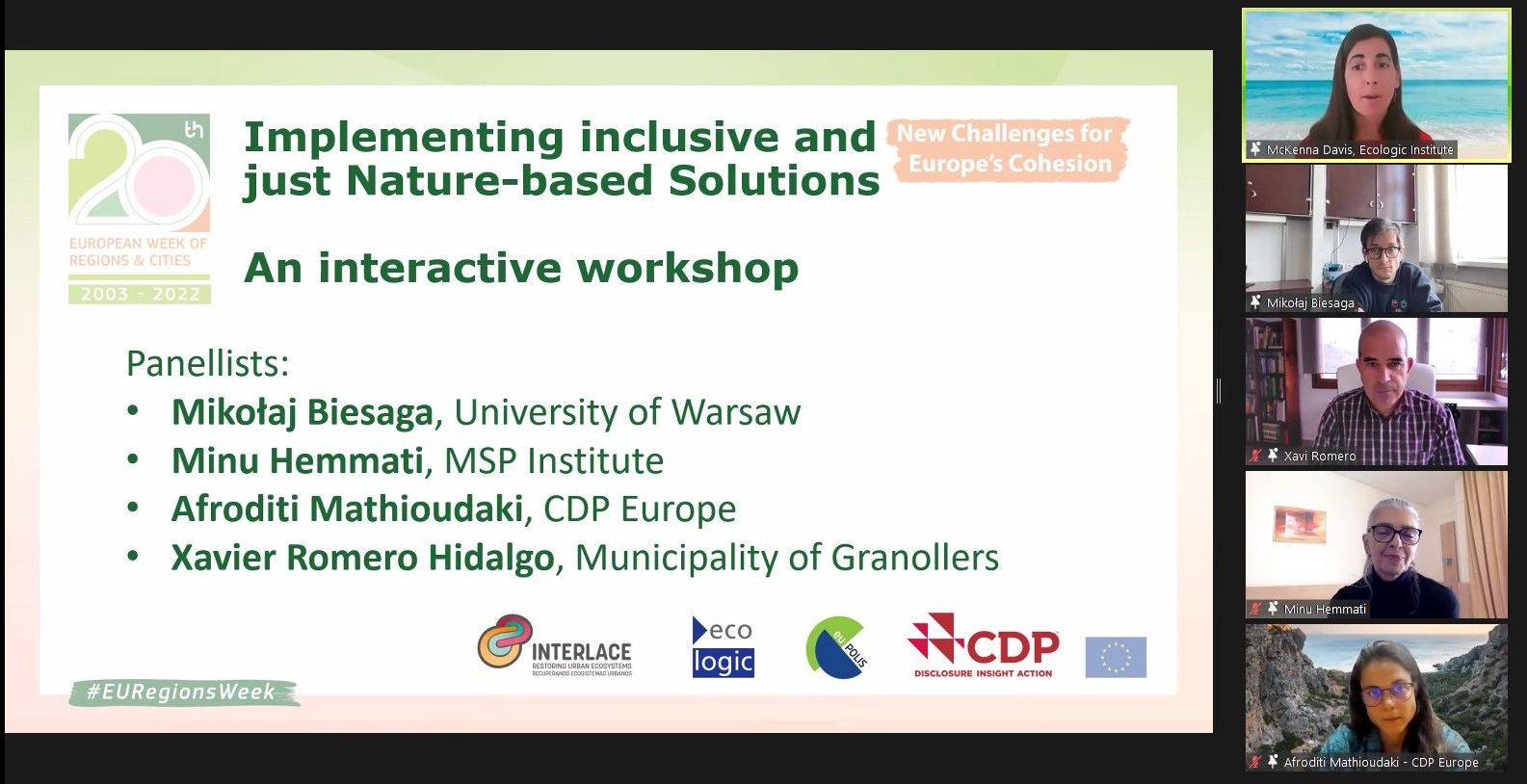© Kassia Rudd
Participation is Key – at the right time
Good practices in involving local communities in the co-creation of restoration activities to building resilient cities
- Presentation
- Date
-
-
- Location
- Cascais, Portugal
- Speech
At the occasion of the 10th Anniversary Edition of the European Urban Resilience Forum, Ecologic Institute's Doris Knoblauch gave two presentations, showcasing insights both of the CLEVER Cities project as well as the INTERLACE project.
On 19 October 2023, Doris Knoblauch, Senior Fellow at Ecologic Institute, Berlin, was featured as a speaker for the workshop session "Ecological quality of restoration activities and nature‐based solutions". The session under this topic focused on concrete solutions that, in the last 10 years of discussions, proved to increase resilience and sustainably make cities adapt to the changing climate. Looking particularly at how Nature-based Solutions and green-blue infrastructure have been mainstreamed in planning and action, the speakers assessed the performance of tested solutions and the need to accelerate and increase their impact at a larger scale. Reflecting on the transformational aspect of resilience, the sessions discussed the role of participation in upscaling solutions. Doris Knoblauch devoted this session in particular to the question of how the involvement of local communities in the co-creation of redevelopment restoration activities can contribute to building resilient cities with shared ownership. As a best practice example, she featured the Citizen Platforms Chemnitz, one of more than 250 good practice examples in the Urban Governance Atlas, that was developed as part of the INTERLACE project.
On 20 October 2023, Doris Knoblauch was a speaker at the plenary panel "Scaling Up Nature-Based Solutions: Are We Ready to Unleash Nature's Full Potential?". The panel focused on whether effectively addressing the negative impacts of climate change requires a significant scaling up of nature-based solutions (NBS). Key discussion points were the cornerstones underpinning the process of scaling up NBS, highlighting standardisation processes, pioneering research, policy frameworks and the successful implementation of NBS projects, all of which contribute to the global scale-up of NBS initiatives.
Doris Knoblauch provided answers to the question of which innovative governance models have proven effective in mobilising local communities and stakeholders to participate in nature-based solution projects in urban areas, and what important lessons can be learned from the experiences of local and regional governments in implementing these governance models that can be adopted by other regions. As good practice examples, she presented the Participatory Budget of San Pedro Garza Garcia (Mexico) again from the Urban Governance Atlas, that was developed as part of the INTERLACE project. But she also presented good examples from the CLEVER Cities project, namely how local residents received a capacity-building training in London (UK) and turned into a Community Design Collective (CDC). Furthermore, a brand "Making Space for Nature" was created again in London (UK). This showed that giving out small grants can actually yield a very high return on investment due to the dedication of residents to implement 'their' projects. These examples can be found in the CLEVER Regional Solutions Catalogue that is part of the CLEVER guidance.
The 10th Anniversary Edition of the European Urban Resilience Forum (EURESFO) provided the space and time to discuss a shared vision to implement a European resilient transformation. Looking back at the path that brought cities and regions together for the last 10 years of resilience fora, participants were able to evaluate their performance and highlight challenges, missed opportunities as well as good practices. Building on the EURESFO experience, they discussed key opportunities to act better and quicker in the upcoming future.






